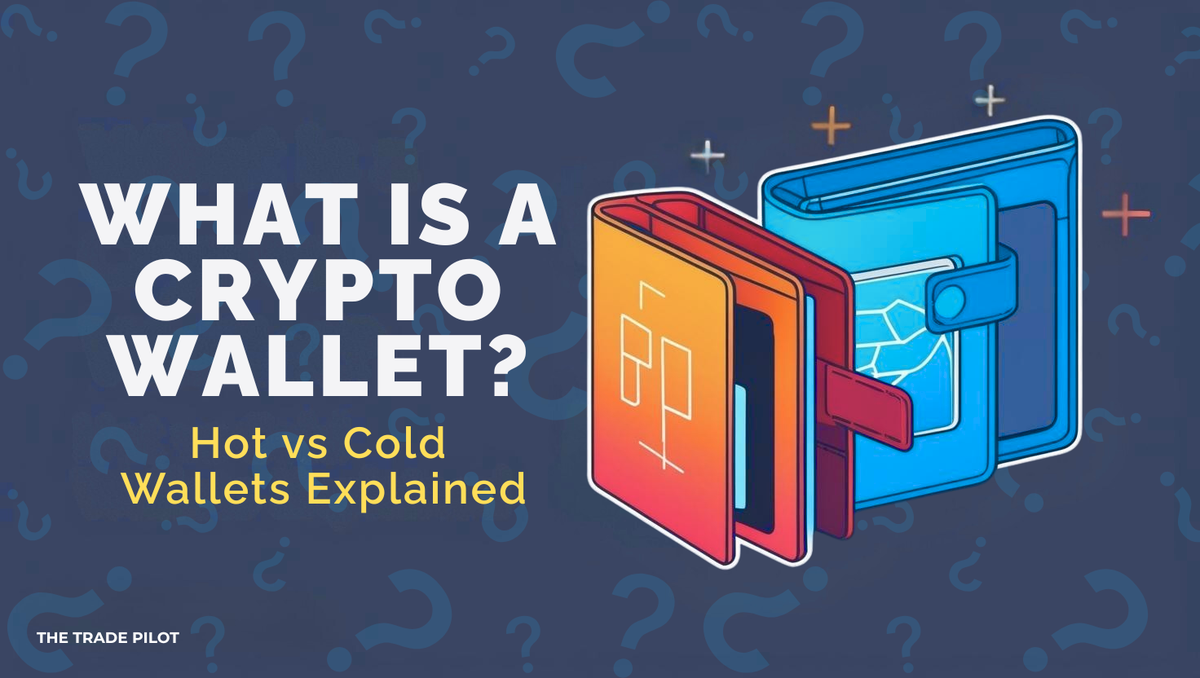Confused about how to store your cryptocurrency? Learn the difference between hot and cold wallets and how to keep your assets safe.
If you’re getting started with cryptocurrency, one of the first things you’ll encounter is the concept of a crypto wallet. But what exactly is a crypto wallet, and why does it matter?
In this article, we’ll explain the basics of crypto wallets, the difference between hot and cold storage, and how to choose the right option for your needs.
What Is a Crypto Wallet?
A crypto wallet is a tool that allows you to store, send, and receive cryptocurrencies. But unlike a physical wallet that holds cash, a crypto wallet doesn’t actually store your coins—it stores your private keys.
Private keys are like digital passwords that allow you to access and control your crypto funds on the blockchain. Without your private key, you can’t move or use your coins. That’s why wallet security is so important.
There are two main types of wallets: hot wallets and cold wallets.
Hot Wallets: Convenient but Connected
Hot wallets are connected to the internet. They are convenient, user-friendly, and often come in the form of mobile apps, desktop programs, or web-based platforms.
Examples of hot wallets include:
- Mobile wallets (like Trust Wallet or MetaMask)
- Desktop wallets (like Electrum)
- Web wallets (like Blockchain.com or exchanges like Binance)
Pros:
- Easy to set up and use
- Great for frequent transactions
- Access from anywhere with internet
Cons:
- More vulnerable to hacks, malware, and phishing
- Relies on third-party platforms in many cases
Hot wallets are ideal for small amounts of crypto or day-to-day use. If you’re actively trading or making payments, a hot wallet offers the speed and convenience you need.
Cold Wallets: Secure and Offline
Cold wallets are offline wallets. They store your private keys in a device or format that’s not connected to the internet, making them much harder for hackers to access.
Common types of cold wallets include:
- Hardware wallets (like Ledger Nano or Trezor)
- Paper wallets (a printed or handwritten document containing your private keys and addresses)
- Air-gapped computers (devices used strictly for wallet access without ever connecting to the internet)
Pros:
- Extremely secure from online threats
- Ideal for storing large amounts of crypto long-term
Cons:
- Less convenient for daily transactions
- Risk of physical damage or loss if not backed up properly
- Hardware wallets can be expensive
Cold wallets are the best choice for long-term investors or anyone storing significant amounts of cryptocurrency.
Which One Should You Use?
Your choice depends on your needs:
- If you're new, just learning, or trading frequently → Start with a hot wallet.
- If you're holding crypto for the long term or want to protect larger sums → Use a cold wallet.
In fact, many experienced users use both. For example:
- Keep a small amount in a hot wallet for quick access.
- Store the rest in a cold wallet for long-term safety.
This way, you get the best of both worlds—convenience and security.
The Importance of Backups and Safety
No matter what type of wallet you use, always:
- Write down and securely store your seed phrase or recovery phrase.
- Never share your private keys or recovery phrase with anyone.
- Use two-factor authentication (2FA) when available.
- Regularly update your wallet software.
Losing your private key or recovery phrase means permanently losing access to your funds. There’s no “forgot password” option in crypto.
Crypto Wallets and The Trade Pilot
If you’re using a crypto trading bot like The Trade Pilot, your wallet is likely connected to a centralized exchange via an API. These platforms act like hot wallets, so it’s important to:
- Use strong, unique passwords
- Enable all available security features
- Only keep as much crypto on the exchange as necessary for trading
Final Thoughts: Protecting Your Crypto Starts with the Right Wallet
Understanding how crypto wallets work is one of the most important first steps in your crypto journey. Whether you go with a hot or cold wallet, or both, the key is knowing how to protect your private keys and stay in control of your funds.
As your experience grows, so will your need for better security and wallet management. Start simple, stay safe, and never stop learning.

